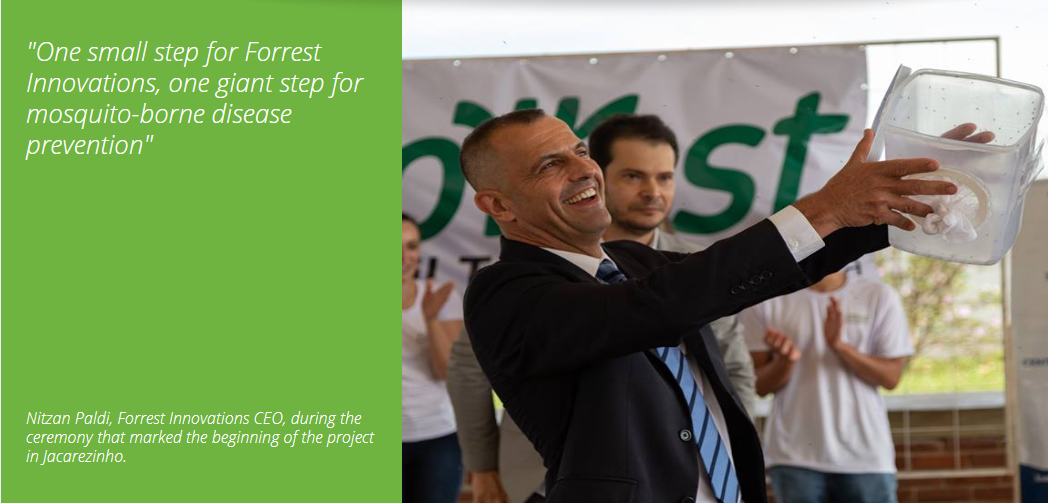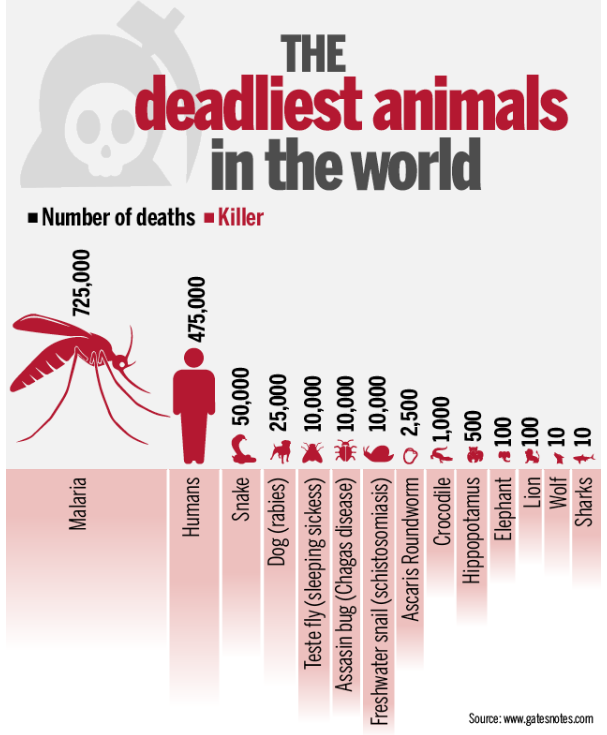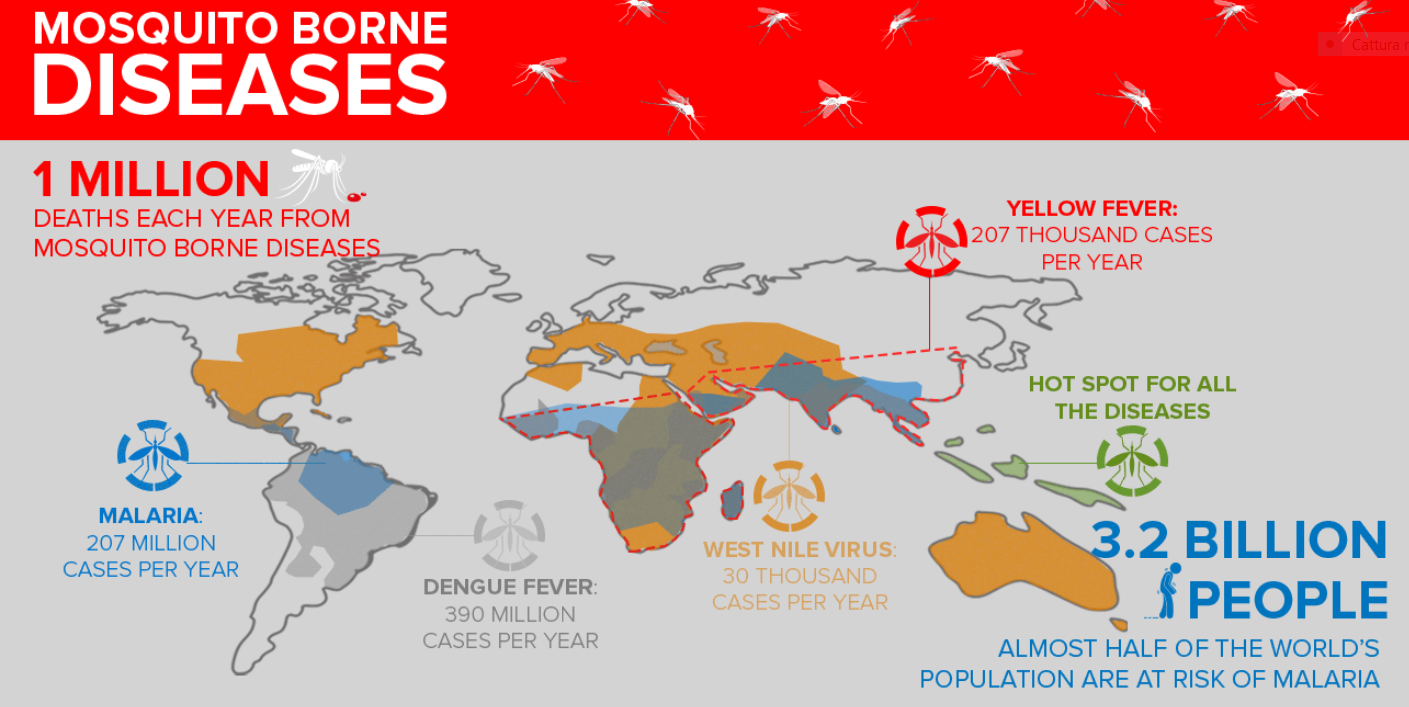
MOSQUITOS-BORNE DISEASES

Mosquito-borne illnesses, are responsible for up to 750,000 deaths a year worldwide, include tropical killers such as malaria and dengue, along with terrifying upstarts like Zika, which can cause birth defects.
The most deadly vector borne disease, Malaria, kills over 1.2 million people annually, mostly African children under the age of five. Dengue fever, together with associated dengue haemorrhagic fever (DHF), is the world’s fastest growing vector borne disease.

Source : rentokil.com
Poorly designed irrigation and water systems, inadequate housing, poor waste disposal and water storage, deforestation and loss of biodiversity, all may be contributing factors to the most common vector-borne diseases including malaria, dengue and leishmaniasis but also the influence of climate change cannot be overlooked.
Since vectors are cold-blooded, changes in temperature alter both the biology and the population dynamics of mosquitos, which in turn impacts their development rates, feeding patterns and reproductive cycles. When temperatures rise, the time between generations of mosquitoes shortens.
There are new strategies for prevention and control of vector-borne diseases :
Forrest Innovations is an Israeli firm that creates sterile male mosquitos based on the collection, amplification and proprietary process sterilization of the local, highly adapted mosquito population. This enables the use of non-genetically modified, non-biting males dramatically reduce mosquito populations. Forrest calls this “Natural Vector Control” (NVC).
Forrest Innovations set up a Mobile Modular Mosquito Mass Production Unit in the Brazilian city of Jacarezinho last year, and has recently received all applicable regulatory permits and started to release sterile male mosquitos. The project is being run in collaboration of TEPCAR, the technological institute of Paranà State, where Jacarezinho is located, and has support from the local municipality, the Sanitary Vigilance Services, the Brazilian Environmental Protection Agency and the Secretary of Health.
Nitzan Paldi, Forrest Innovation CEO, says its NVC technology “has the potential to save human life, reduce human suffering and bring tremendous economic benefit”.
Environmental and social responsibility are deeply embedded in Forrest’s diverse activities : vision already implemented by its CEO Nitzan Paldi in a previous project (acquired by Monsanto in 2011) that developed a solution to combat honeybee colony collapse disorder.
Sources : who.int – israel21c.org – blogs.scientificamerican.com – medicalxpress.com – forrestinnovations.com
DISCLAIMER
This publication must not be regarded as offering a complete explanation of the investment tax, legal, and other type of matters that are contained within this publication.
Authors are not responsible for the results of any actions which are undertaken on the basis of the information which are contained within this publication, not for any error in, or omission from, this publication.
The authors expressly disclaim all and any liability and responsability to any person, entity or corporation who acts or fails to act as a consequence of any reliance upon the whole or any part of the contents of this publication.
Accordingly no person, entity or corporation should act or rely upon any matter or information as contained or implied within this publication without first obtaining advice from an appropriately qualified professional person or firm of advisors, and ensuring that such advice specifically relates to their particular circumstances.



